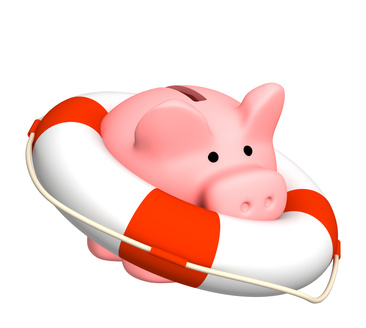
Often, the fear, stress and confusion we feel over finances can be traced back to childhood and the experiences we had with money growing up. Personal finance writer Suze Orman wrote in her book The 9 Steps to Financial Freedom that her own money issues started when she was a child: "When I was very young I had already learned that the reason my parents seemed so unhappy wasn’t that they didn’t love each other; it was that they never had quite enough money even to pay the bills. In our house money meant tension, worry and sorrow."
We may not be able to fix the global economy overnight, but we can start to rewrite the way we think about money and how we deal with financial tensions. Once we understand our fears, we can begin to conquer and move past them.
Money Journal Entry: Start at the Very Beginning
When doing your personal journaling, open up to a new page in your journal, and spend some time reflecting on your early memories of money within the context of your family. Try to remember as many details, however small, as you can. Answer the following questions:
1. What is your very first memory of understanding how money works? How old were you? What details and emotions do you remember about the scene?
2. Did you receive an allowance as a child? Did you earn more or less than your friends? Did you have to do certain tasks or chores in order to receive your allowance?
3. At what age did you start a bank account? Did you have a tendency to spend or save more of your money when you were younger? Did your parents encourage you to start saving early in your life?
4. Did you grow up in a household with both your parents? Did both of your parents work outside of the home?
5. Did your parents discuss the family finances with you as a kid? Were you aware of any money troubles they had? Did you hear your parents have arguments over money?
6. Did you envy some of the more expensive possessions your friends had? Did you feel your family had more, less or the same as the families of your friends
7. Did your family go on vacations every year? Where was your most memorable vacation?
8. What was your first paying job? How old were you? What did you do with your first paycheck?
9. What is the most memorable piece of advice your parents gave you about money? Do you still take this advice to heart as an adult?
10. When you think about money and your family, what three words come to mind first?
Read over your responses in your money journal entry, and reflect on how each question relates to the way you think of money as an adult. Can you see certain patterns you inherited from your parents? What fears or tensions do you still carry with you from childhood? Congratulations on taking the first step toward understanding and overcoming your financial fears!
Have you used personal journaling to confront your financial worries? Add your observations or tips in the comments below.

Leave Comment